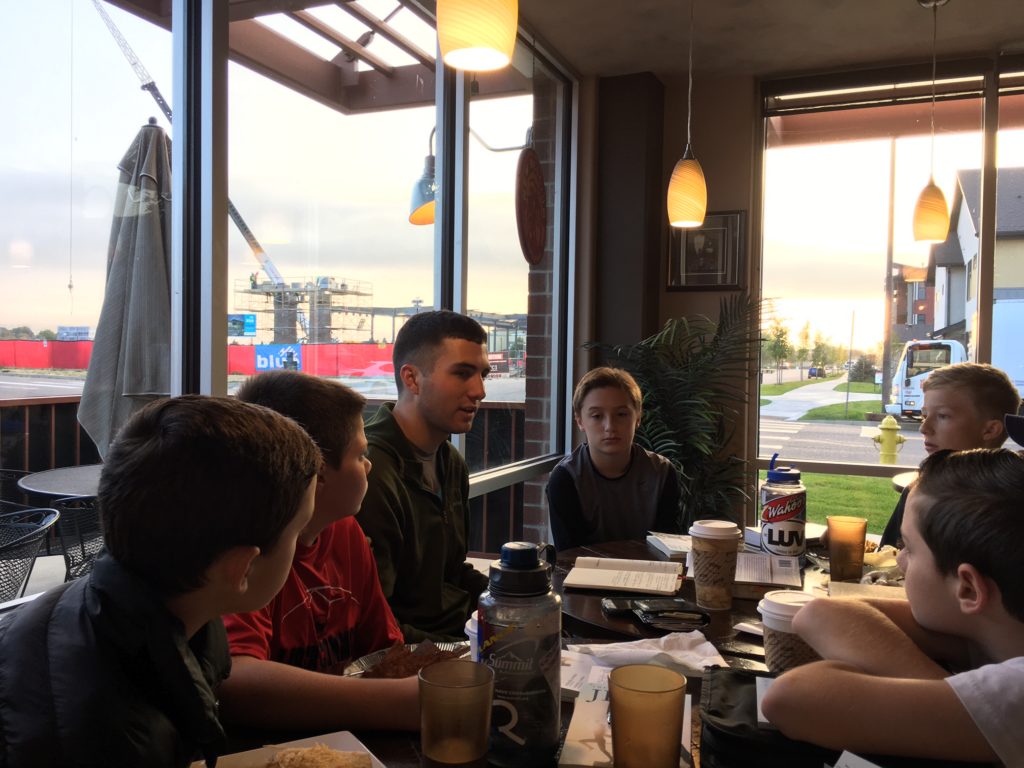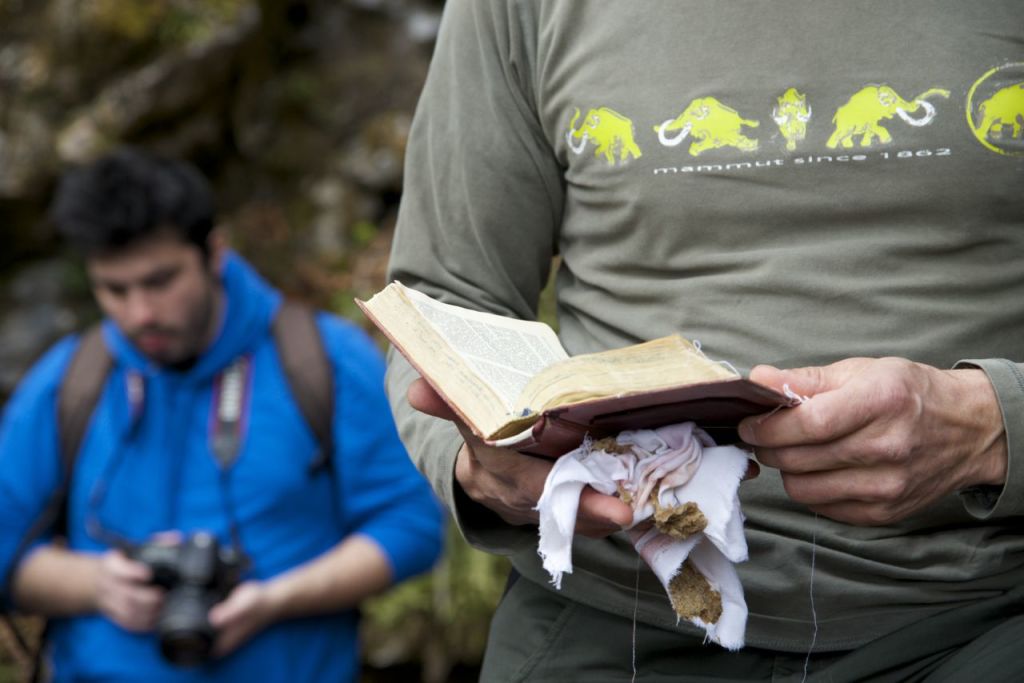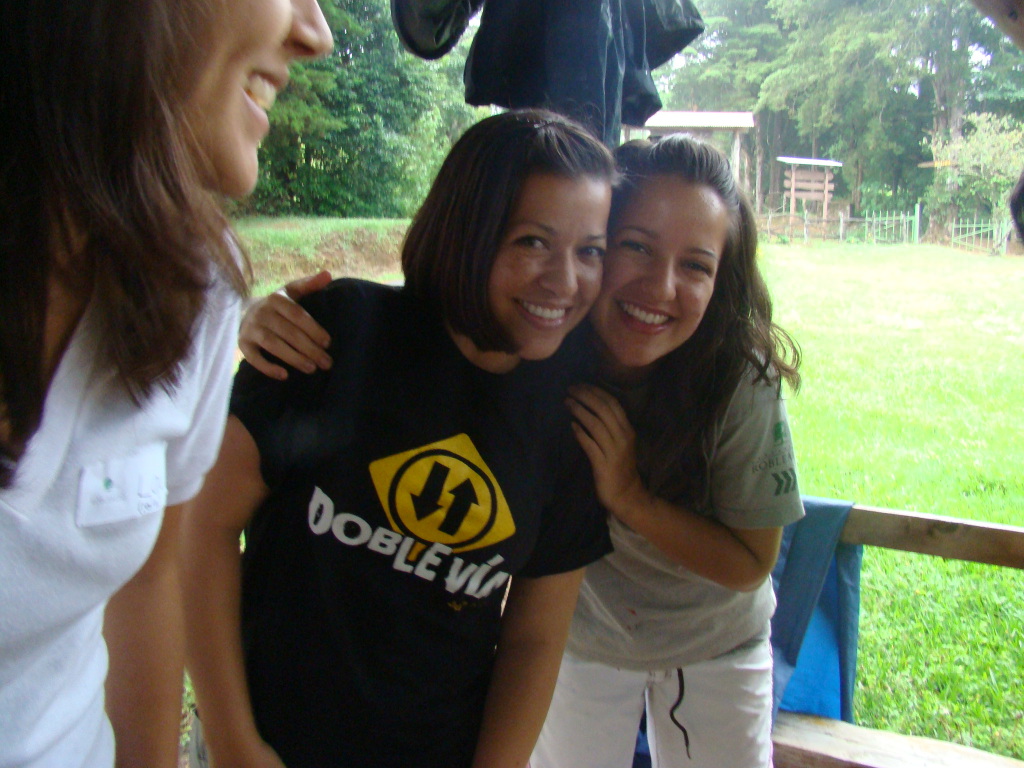Friendship is powerful. During adolescence, it becomes central to almost everything, especially trials. One of the privileges of discipling young people is being able to walk through trials with them and point them to Jesus when they need healthy support. From our smallest needs to our most epic feelings of desperation, we all long for someone who loves us, is reliable, is capable, and is willing to humble themselves enough to help, even if it requires sacrifice. The Gospel of John shows 4 reasons why we should turn to Jesus in times of trouble that you can use to point young people to Christ. He is the best friend and ultimate support in times of need.
Category Archives: Adolescence
PSALM 119:98-100 | A LIGHTHOUSE OF HOPE TO THE YOUNG
Young David wrote a staggering number of jazzy beats in his lifetime. Three lines from one of his 70+ songs (a.k.a. Psalms) stood out to me recently. His lyrics shine like a lighthouse for young people the world over who are navigating the boat of their life through treacherous waters. Many “serious” voices fill the air with claims of authority. Although they claim to have the high ground, we know that worldly wisdom is just strings of empty words parroted from talking heads, spewing half-truths. David’s Psalm 119 calls this out.
5 WAYS TO STRENGTHEN YOUR RELATIONSHIP WITH YOUR TEEN
Good relationships are vital to health. Family relationships, especially, are fundamental in equipping children to live a happy and successful life. Achieving strong family relationships take care, work, and effort. It is no surprise to anyone that the teen years bring challenges that can threaten good, positive relationships between parents and their children. There is hope, however, of combating these challenges and maintaining or developing strong, healthy relationships with your teens.
ParentFurther is an online resource that has tools to help families strengthen relationships through shared activities. They have identified 5 research-backed relationship strategies to help us learn and grow with each other.
-
EXPRESS CARE
We all need to know that we are cared about. Teens especially need to feel that their parents care about them. Care is shown when we listen, when we are warm to each other, when we invest in each other, when show interest, and when we are dependable. Research shows that when children and youth have warm caring relationships, they do better in school, have less risky-behavior, work harder, and have a hopeful sense of purpose.
-
CHALLENGE GROWTH
Challenging occurs is many forms in the parent-child relationship. Part of a parent’s role is to challenge their child to grow, learn, and improve. Inspire your teen to see future possibilities for themselves. Give expectations that are clear and communicate that you want your child to live up to their potential. Stretch your child by encouraging them to push beyond their abilities Provide limitations that hold your child accountable to rules and expectations
-
PROVIDE SUPPORT
Support also come is many ways, but there can never be too much of it! Supporting your teen in practical and noticeable ways occurs through encouragement, guidance, modeling, and advocating. As relationships are two-way, so is support. It is good for parents to have support from other adults as a model for your teens.
-
SHARE POWER
“Sharing power” refers to the actions used to influence, learn from, and work with each other. How do you share power then? In our relationships it looks like sharing respect, negotiating (giving each other a voice in making decisions that affect them), responding to each other, and collaborating to accomplishing goals and solve problems.
-
EXPAND POSSIBILITIES
Trying new things, meeting new people, going to new places, and thinking about new ideas are all ways in which you can expand possibilities for yourself and for your teen. Help your teen explore by exposing them to new people, places, and things. Connect them to others that can help them grow. Navigate through problems that could prevent them from expanding their possibilities with them.
Visit parentfurther.com for more information about these strategies and to read about the research backing them. You will also find quizzes and discussion questions to ask your teens.
I highly recommend you visit their website and take their free inventory to see growth areas in your own parenting skills with teenagers.
Joy can be Experienced When Circumstances Stink – Matthew 5: 1-12
The Sermon on the Mount for Teenagers
Two things that every teenager can identify with are a lack of hope and a deep sense of loneliness. Joy is the remedy, but how do you find it?
 LACK OF HOPE
LACK OF HOPE
When classes get hard, school seems totally pointless, friends betray you, you get cut from a team or fail a quiz… all of this can make a teenager feel hopeless. Hope is when a person has reason to believe something good is going to happen to them. Teenagers, because of the roller coaster of emotions and disloyalty among peer relationships, often do not feel like anything good is going to happen to them today, or tomorrow. Because emotions are heightened in adolescence, it is not uncommon for them to either hate or love school, depending on the day or month. This is a normal pattern, but it is not a helpful one. Those of us who really love teenagers can do something to help our teenage friends experience hope even if their circumstances stink.
LONELINESS
Because everyone wants to feel included, teenagers tend to run in small packs. Unfortunately to preserve their sense of belonging they often cut down or make fun of other kids who are not in their group. The devastation of this pattern is insecurity for just about everyone. When a kid cuts someone down or does not show mercy toward someone who messed up, the result is deeper loneliness because everyone intrinsically knows that they are no better than anyone else. Eventually this “pack mentality” catches up with everyone. Each of us will mess up and get made fun of or ridiculed, its just a matter of time.
So how do you break out of this vicious cycle, and maybe help another teenager get free from this joyless trap of loneliness and fleeting hope?
Bragging: How to Break the Habit – Proverbs 27:2
PALS 10 Minute Devotions
 Bragging is a temptation for all of us because everyone wants to feel special and noticed. This is a basic human need. Since God wants us to feel highly valued through friendships and family, we all need to learn to avoid bragging. When we feel insecure, our first sinful instinct is to take things into our own hands and brag. The irony is if we just trust what God teaches about bragging, and follow his guidance, then we will eventually get the very thing we are seeking: relationships. But if we ignore God’s teaching and seek relationships in our own flesh, we will get the opposite: no relationships. After all, who wants to be around someone who is bragging all of the time?
Bragging is a temptation for all of us because everyone wants to feel special and noticed. This is a basic human need. Since God wants us to feel highly valued through friendships and family, we all need to learn to avoid bragging. When we feel insecure, our first sinful instinct is to take things into our own hands and brag. The irony is if we just trust what God teaches about bragging, and follow his guidance, then we will eventually get the very thing we are seeking: relationships. But if we ignore God’s teaching and seek relationships in our own flesh, we will get the opposite: no relationships. After all, who wants to be around someone who is bragging all of the time?
In working with young people I like to tackle crippling issues like this in a short devotional style called PALS.
Lunchroom Gospel: How to Grow Your Youth Ministry
Most of us remember what it is like in the lunchroom. After you get your lunch you scan the room for a table to sit where you will feel welcome. Adolescence can be a season of devastating insecurity, and the lunchroom can shine a spotlight on your loneliness. Kids are just waiting for someone to shine and share the Gospel with them.
I have spent a lot of time in lunch rooms with kids. Today as much as ever we must not abandon the lunch room and other places kids hang out. We need brave young leaders who are willing to go into the world of kids to be authentic representatives of Jesus. A song by John Michael Talbot casts a compelling biblical vision for those who might go offer the Bread of Life of the Gospel to kids in middle schools, high schools, and colleges:
Come to the table He’s prepared for you
The bread of forgiveness, the wine of release
Come to the table and sit down beside Him
The Savior wants you to join in the feast,,,And here at the table, sit those who have loved youOne is a traitor and one will denyBut He’s lived his life for them allAnd for all be crucified (John Michael Talbot song, “Come to the Table”)
REMEMBER THE LUNCHROOM SO YOU DON’T LOSE YOUR HEART FOR ADOLESCENTS & THE GOSPEL
Imagine carting your lunch tray out of the food line and as you look over the crowd you see a popular kid smile at you. With the wave of his hand he invites you to come sit at his table. You probably feel awkward. Like crossing the street you look side to side wondering if he is waving at you. Glancing back, you see his eyes look right at you. He nods and beckons you to come sit next to him. Sheepishly approaching his table, his friends shift a bit to make room for you. And they all give you a warm welcome. This is a picture of the Good News of Jesus. It symbolizes the ministry of reconciliation Jesus has given to his disciples to share with the world through warm hospitality.
“Come, all you who are thirsty, come to the waters; and you who have no money, come, buy and eat! Come, buy wine and milk without money and without cost.” (Isaiah 55:1)
WHEN SOMEONE INVITED ME TO THE TABLE
When I was I was in high school, this scene happened to me, but it happened on a soccer field, not the lunch room….
4 Things College & High School Campuses Need
If you are a college student, student ministry leader, or parent of a college student I want you to read this post. College is a window of opportunity. With just a bit of intentionality your college ministry experience could be the difference between a bowl of oatmeal and a Belgian waffle with strawberries and whipping cream. Our college campuses are of course intensely secular places, but there’s really nothing new about that. Followers of Jesus have always been on the outside, a little strange in comparison to the dominant culture. Yet one thing that does seem different today on college campuses is the scale of erosion in the soil of Christian community.
The concern is that without context, it is hard for a young believer to grow and progress in Christ. Without an adequate alternative culture of Jesus-loving friends around you, there is a good chance you will be impacted more by the dominant culture around you, rather than you impacting it. Context to live out our faith is absolutely crucial.
15 Ways to Help Students Find Peace they are Longing for through the Gospel…
As a youthworker or parent, to give hope and solace to teenagers, we need to tell them how to find peace. The world has questions. The Bible has answers. Students, ages 13-25 in particular are beginning to shift from a totally concrete view of the world to a more abstract perspective.
This means that adolescence is a time where we begin to process our environment and relationships by asking lots of questions. Most of these questions go unspoken, but they are there if you dig for them.
3 Things Teenagers Need to Hear from Adults
The best way to keep the communication lines wide open with teenagers is to consistently show them respect. Distance is what adolescents often feel from adults. They think adults don’t understand them, are vastly different from them, and don’t struggle with what they struggle with.
This could not be further from the truth. Here are three things that teenagers need to constantly hear from you through verbal and nonverbal vibes…
The Power of Friendship: Why Adolescence is All About Friendship?
Youth are significantly influenced by their friends. This is why it’s important to have youth leaders who can model what it means to be a good friend.
Greater love has no one than this: to lay down one’s life for one’s friends. -John 15:3
Friendship is important in every stage of development. But during adolescence friendship becomes central to everything. This is a critical stage of development because teenagers are building a foundation for having good friendships the rest of their lives.
One of the most powerful benefits of healthy youth ministry is that we can help kids understand God’s design for relationships. Jesus talked alot about friendship, and we know that he nurtured model friendships in his disciples. A teenager’s intense preoccupation with friendship is a good thing. It is an opportunity for the adults in their lives to imprint in them a road map for a lifetime of good friendships. Here’s how…







